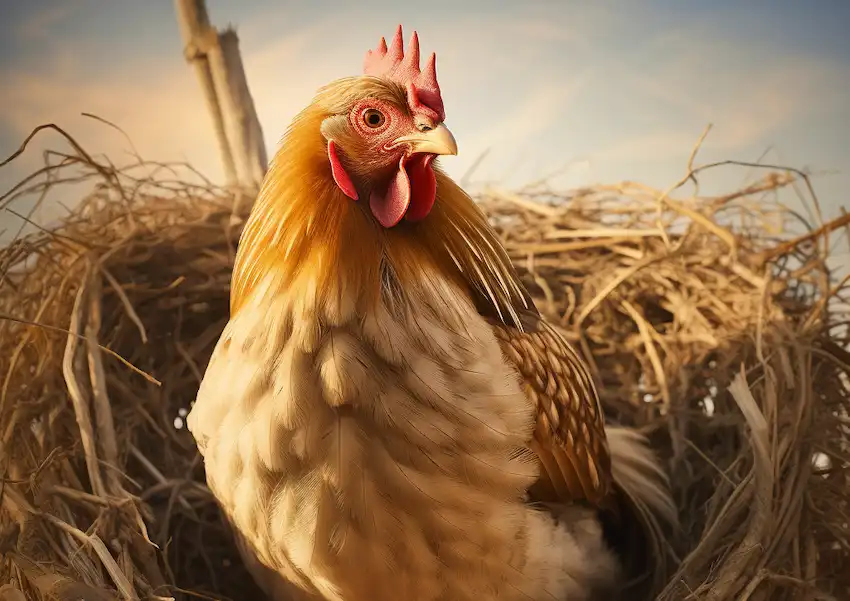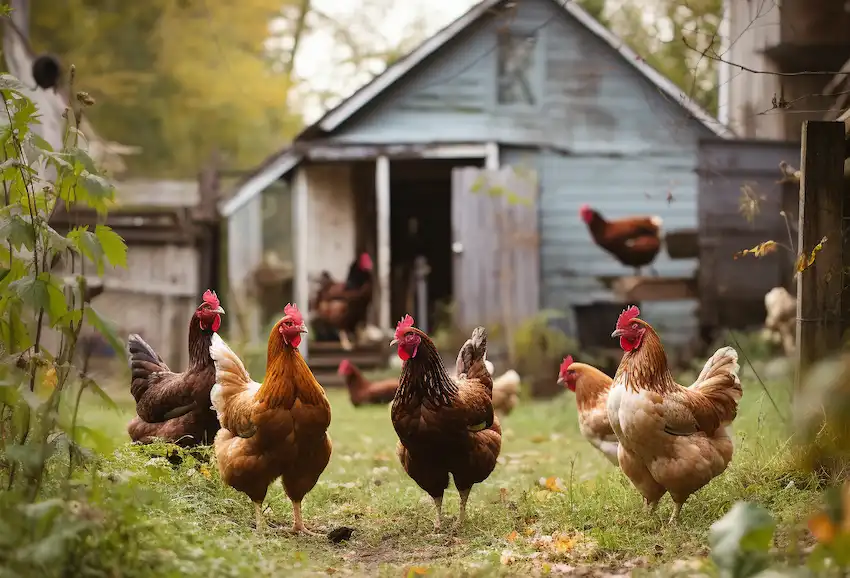Maximizing your chickens’ egg-laying potential involves a combination of good husbandry practices, proper nutrition, and stress management. By implementing the following strategies, you can encourage your flock to produce more eggs, ensuring a steady supply for your household or business. Here’s how to make your chickens lay more eggs, incorporating detailed steps and considerations for each point.

1. Ensure Access to Clean Water
Why It’s Important: Chickens need constant access to clean, fresh water for optimal health and egg production. Contaminated water can lead to dehydration and illnesses, affecting their laying capabilities.
How to Implement:
- Provide fresh water daily, using clean containers to prevent the buildup of algae and bacteria.
- Position waterers in shaded areas to keep the water cool and refreshing.
- Monitor water levels throughout the day, especially in hot weather, to ensure your chickens have continuous access.
2. Reduce Stress
Why It’s Important: Chickens are sensitive to stress, which can significantly decrease their egg-laying frequency. Stressors can include environmental changes, predator threats, and overcrowding.
How to Implement:
- Maintain a consistent routine for feeding and care to minimize disruptions.
- Provide adequate shelter and hiding spots to help chickens feel secure.
- Ensure the coop and run are protected from predators and extreme weather conditions.
3. Supplement Calcium
Why It’s Important: Calcium is crucial for strong eggshells. A deficiency can lead to soft-shelled or shell-less eggs, which are not viable.
How to Implement:
- Offer a separate container of oyster shell or limestone for hens to peck at as needed.
- Use layer feed formulated with the appropriate levels of calcium for laying hens.
- Monitor eggshell quality and adjust calcium supplements accordingly.
4. Provide Enough Space

Why It’s Important: Overcrowding can lead to stress, aggression, and health issues, all of which negatively impact egg production.
How to Implement:
- Ensure the coop provides at least 4 square feet of space per chicken inside and 8 square feet in the run.
- Regularly clean and maintain the coop to prevent disease and promote well-being.
- Consider expanding your space or reducing flock size if overcrowding becomes an issue.
5. Control Parasites and Bugs
Why It’s Important: External and internal parasites can harm your chickens’ health, leading to decreased egg production.
How to Implement:
- Conduct regular health checks to identify and treat infestations early.
- Use approved poultry dust or sprays to control mites, lice, and other external parasites.
- Administer wormers as needed, following veterinary advice to avoid resistance.
6. Maintain Cleanliness
Why It’s Important: A clean environment is essential for preventing disease and ensuring your chickens are comfortable and stress-free.
How to Implement:
- Perform daily cleanings to remove waste and leftover food.
- Deep clean the coop regularly, replacing bedding and sanitizing waterers and feeders.
- Practice good biosecurity measures to prevent the introduction of diseases.
7. Support During Molting
Why It’s Important: Molting is a natural process where chickens renew their feathers, during which egg production may halt.
How to Implement:
- Increase protein intake by providing a higher-protein feed or supplementing with protein-rich treats.
- Minimize handling to avoid causing pain to new pin feathers.
- Ensure a stress-free environment to help hens focus their energy on feather regeneration.
8. Provide Quality Feed
Why It’s Important: Nutrition plays a crucial role in egg production. High-quality feed ensures your chickens have all the necessary nutrients to lay consistently.
How to Implement:
- Choose a high-quality layer feed with the right balance of protein, calcium, and other essential nutrients.
- Avoid over-supplementing with treats or scratch grains, which can dilute the nutritional value of their diet.
- Monitor your flock’s health and egg production to adjust their diet as needed.
9. Picking the Right Breed

Why It’s Important: Some chicken breeds are more prolific egg layers than others. Choosing the right breed can significantly impact your flock’s productivity.
How to Implement:
- Research breeds before purchasing, focusing on those known for high egg yield, such as Leghorns, Rhode Island Reds, or Sussex chickens.
- Consider your climate and coop space, as some breeds perform better in certain environments.
- Mix breeds for diversity, resilience, and a steady supply of eggs throughout the year.
By addressing these key areas, you can create an optimal environment for your chickens to thrive and lay more eggs. Remember, consistency in care and attention to detail are paramount in achieving and maintaining high egg production.
